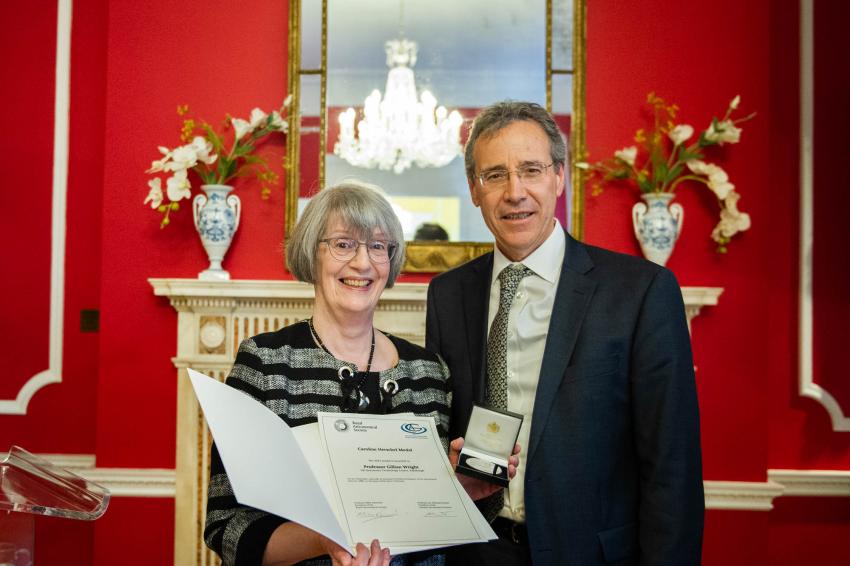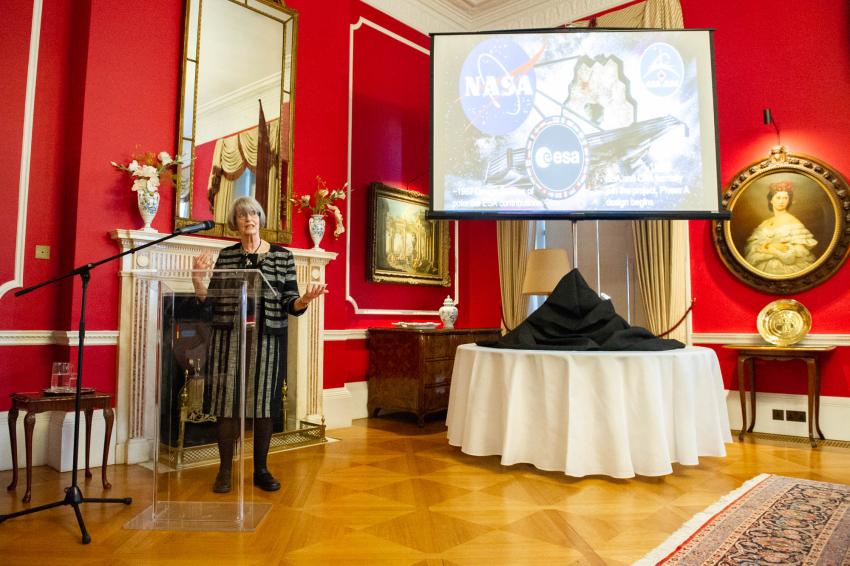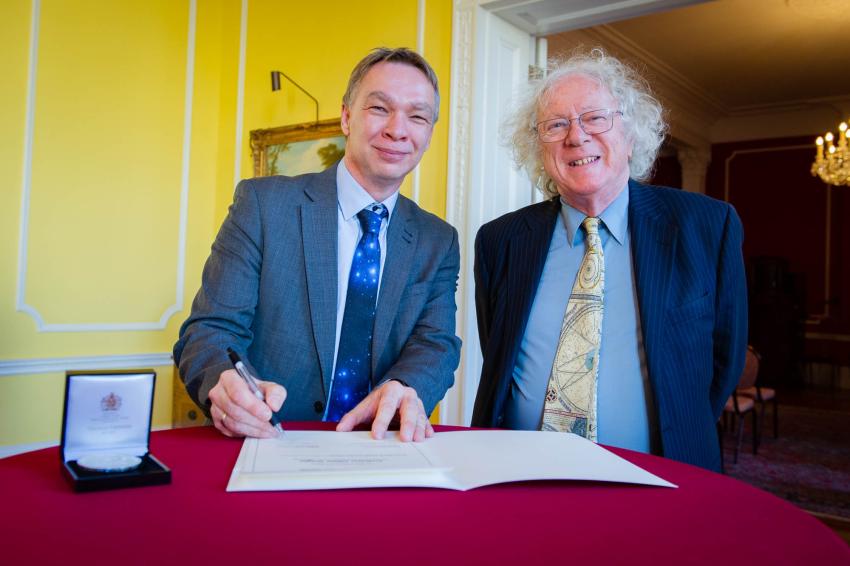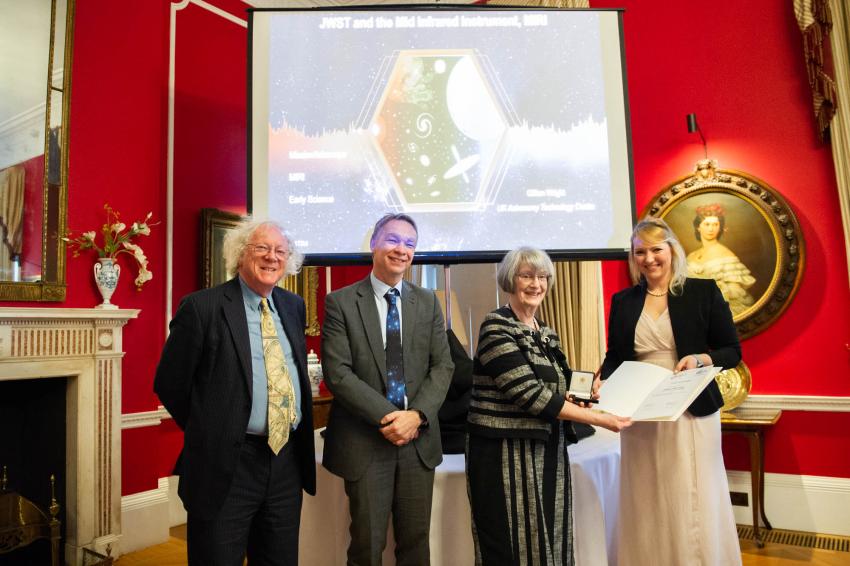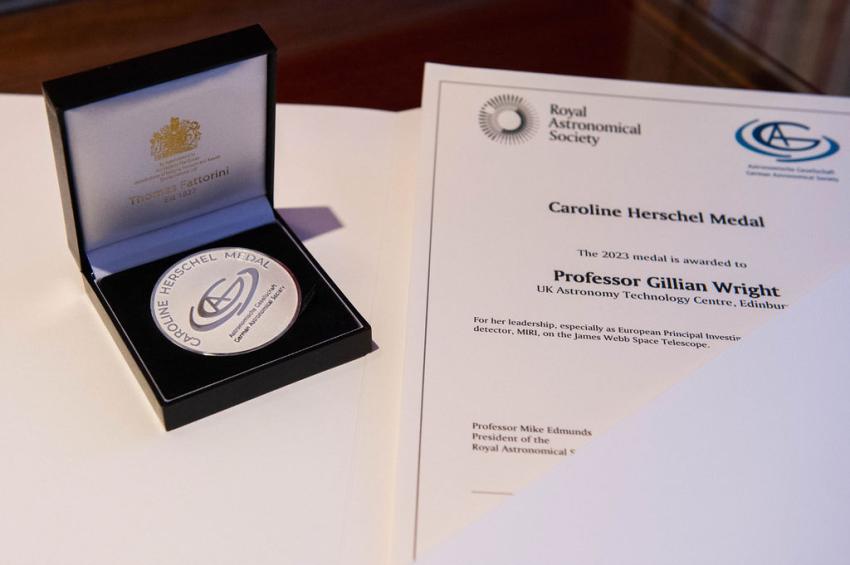Professor Gillian Wright CBE was awarded the 2023 Caroline Herschel Medal in a ceremony that took place on Thursday 13 April 2023 at the residence of the German Ambassador to the United Kingdom. In attendance were representatives from the German Astronomical Society (Astronomische Gesellschaft, AG), the Science and Technology Facilities Council, and the Department for Science, Innovation and Technology.
Professor Gillian Wright CBE FRSE, Director at the UK Astronomy Technology Centre in Edinburgh, is the first UK winner of the Caroline Herschel Medal, a joint award from the Royal Astronomical Society and the German Astronomical Society. Professor Wright wins the medal in recognition of her leadership of the development of the Mid-Infrared Instrument (MIRI) on the James Webb Space Telescope (JWST), in operation since the summer of 2022.
For more than 20 years Professor Wright has been the European Principal Investigator leading a consortium of institutes across Europe that developed MIRI in partnership with NASA's Jet Propulsion Laboratory. This has been a leadership role of considerable complexity requiring excellent scientific, management and interpersonal skills. Her team consists of around 100 people based in ten European countries.
MIRI operates in infrared light beyond the red end of the visible spectrum. Its capabilities including imaging, coronagraphy (using a mask to hide a star to look at its surroundings), high precision time series measurements, and both low and moderate resolution spectroscopy (dispersing light across its constituent colours). With its significant advance in sensitivity and extraordinary angular resolution, the performance of MIRI on JWST will be unsurpassed in imaging and spectroscopy at these wavelengths for the foreseeable future.
The Medal was launched in 2021 by the UK Government in honour of former German Chancellor Angela Merkel. It commemorates Caroline Herschel, who was a distinguished astronomer working in the late eighteenth and the first half of the nineteenth century. Born in Hanover in Germany, she moved to the UK with her brother William, who was the first president of the RAS in 1820, discovered eight comets, revised and greatly improved catalogues of stars, and of clusters and nebulae. The medal recognises her legacy, and the deep and enduring scientific links between Germany and the UK. It is awarded to outstanding women astronomers, alternating between the two countries in each successive year.


